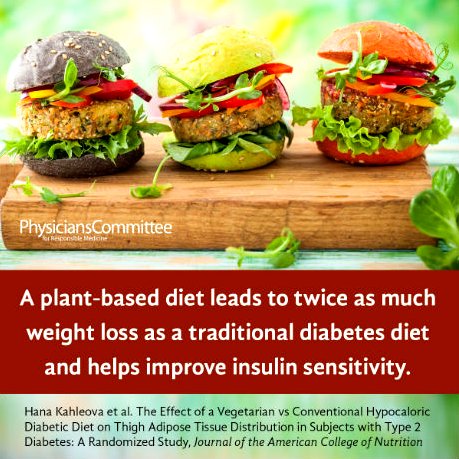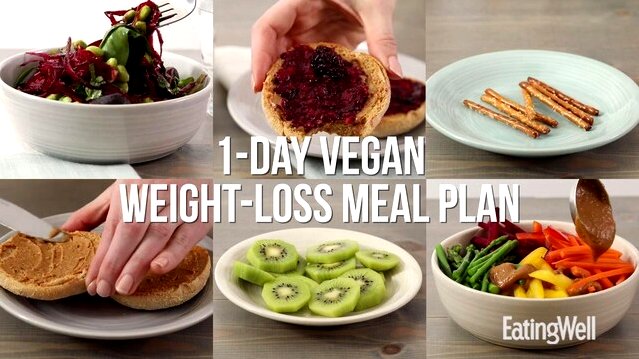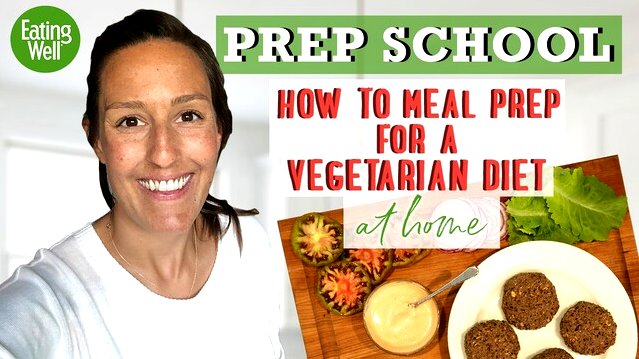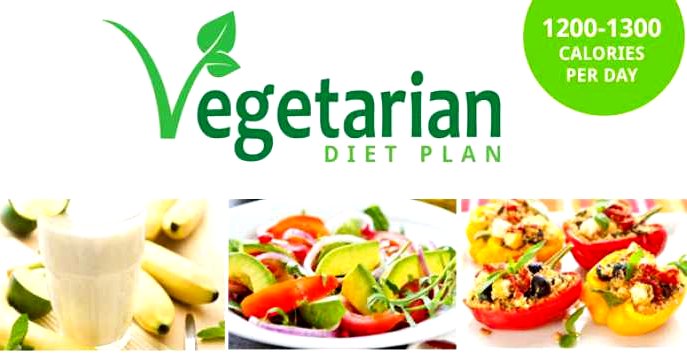Are You Searching for Ways to Shed Weight and Reach Fitness Goals? Perhaps Veganism May Help: With its popularity as an effective weight management strategy, veganism may have caught your interest as an avenue. However, the answer to whether a plant-based diet can aid weight loss isn't so straightforward. As much as veganism may help one lose weight, for optimal results it is vital that one emphasizes eating nutrient-rich food while restricting or minimizing consumption of highly processed vegan options. Fear not; in this comprehensive guide we will explore the complex topic of whether eliminating meat consumption leads to weight loss and provide useful insight on how a whole-food plant-based diet may support your weight-loss journey. From plant-based diets for weight loss, meal plans for vegans and meatless weight loss alternatives - we have you covered. So let's dive into this fascinating topic of plant-based living and discover its immense potential as an avenue for healthier living!
I. Plant-based Diet for Weight Loss
Nutrition experts overwhelmingly promote plant-based diets as being highly advantageous to human health and wellbeing, including weight loss.
To effectively lose weight, incorporating plant-based diets rich in whole and nutrient-dense foods into one's dietary regime could prove fruitful in achieving positive outcomes. But some questions might remain as to exactly how these plant-based diets aid weight loss.
At first, it should be pointed out that plant-based diets tend to have significantly lower caloric contents compared with their meat-based counterparts, due to fruits, vegetables and whole grains' intrinsic qualities containing low amounts of calories while being rich in fiber content; this latter feature plays an integral part in satiety modulation thus decreasing food consumption while aiding weight loss.
Plant-based diets do more than create caloric deficits; their overall health benefits have an immense positive effect on weight management. Plant-based foods contain vast reserves of vitamins, minerals, and essential nutrients which support proper body functioning as well as maintaining energy levels at optimal levels; this in turn allows individuals to remain active and undertake physical pursuits that contribute directly to weight loss.
An effective plant-based diet to promote weight loss
Involves eliminating highly processed vegan foods that have been identified as potential contributors to weight gain rather than loss. Instead, it would be wiser to opt for a plan based on whole, unprocessed foods with an emphasis on nutrient dense foods that give a feeling of fullness; such foods include:
- Whole grains
- Beans and vegetables rich in fiber
- Healthy fat sources like nuts and seeds
- Lean protein sources like tofu and tempeh that contain healthy fats such as nuts and seeds as well as lean protein sources like tofu and tempeh.
Overall, adopting a plant-based diet rich in nutrient-dense foods such as whole, unprocessed foods can be an invaluable tool in combatting weight gain and improving one's state of health and wellbeing. By including plenty of nutrient-dense plants into their daily meal planning regimes, one can achieve weight loss success while simultaneously improving overall wellbeing.
Learn more at PCRM.org.II. Vegan Meal Planning for Weight Loss
Starting a vegan diet to lose weight may seem intimidating at first. When planning vegan meal plans for weight loss, planning ahead is of utmost importance: set aside time each week for pre-planning your meals so as to remain focused and deter any tempting unhealthy meals and snacks from entering your life. Culinary creativity plays a huge role: add vibrant fruits and vegetables as well as whole grains into the mix along with plant-based proteins such as legumes or tofu for maximum results.
Mindfulness and Portion Control
Mindfulness and portion control should become part of your daily eating habits in order to effectively achieve weight loss. Instead of eating until you are completely full, focus on reaching satisfaction instead. Use smaller plates and bowls as means for effective portion control; do not rush through meals; instead relish each bite for maximum contentment. Alternatively, if time constraints limit you or plant-based cooking is difficult for you, vegan meal delivery services provide precisely portioned and nutritional meals which help reach weight loss goals more quickly.
Healthy Snacking Options
Vegan meal planning includes consideration of healthy snacking options. Planning snacks ahead can help prevent unhealthy choices from tempting us during meal times; consider building satisfying and fulfilling snacks like veggies with hummus, mixed berries or even roasted chickpeas as nutritious choices that provide nourishment while satisfying hunger pangs.
Effective Vegan Meal Plan
An effective vegan meal plan for weight loss requires an organized and strategic framework and groundwork, comprised of various nutritious foods with sectioned portions for weight reduction. Furthermore, meal delivery services and meal prep for healthy snacks offer added control in this regard.
III. Losing Weight on a Vegetarian Diet
Veganism vs. Vegetarianism
Veganism and vegetarianism may seem similar at first glance, yet their definitions differ considerably when it comes to animal products and consumption. A vegetal-based diet typically allows dairy products and eggs while vegan diets strictly prohibit these animal sources of nutrition.
Weight Loss Strategy
If going vegan isn't on your agenda for weight loss, opting for a vegetarian diet could provide an effective weight-loss strategy. Vegetarian products boasting high fiber content and low caloric values may lead to greater satiation and hunger control.
Protein and Vegetarianism
Protein is an integral component of vegetarianism. While many mistakenly think meat-eating as the only source of protein intake, vegetarianism offers many alternatives that can fulfill nutritional needs in satisfying its diet - eggs, legumes and dairy products are excellent sources of satiation while soy products like tofu and tempeh can even reduce cholesterol levels!
Remember, in order to effectively use vegetarianism as a means of weight loss, focus on whole, unprocessed food. Flavored vegetarian foods like faux meats or cheese alternatives contain unhealthy fats and high calorie counts which reduce your chances of reaching weight loss.
Including Healthy Fats
Establishing a diet consisting of mostly fats can also help achieve weight loss goals more quickly. Nutritionists recommend including sources such as nuts, seeds, and avocados into your vegetarian diet for this to create an extra feeling of fullness while providing additional health benefits like reduced inflammation risk and the decreased likelihood of cardiovascular disease.
To conclude, vegetarianism can help individuals shed excess weight without adopting an entirely vegan lifestyle. By selecting whole food items rich in natural fibre and vegetarian protein sources and healthy fats as part of an overall balanced meal plan, weight loss becomes achievable and sustainable while simultaneously improving overall health.
IV. Meat-Free Weight Loss Tips
Are You Switching to a Meat-Free Diet or Looking to Reduce Intake? Luckily, there are strategies and approaches available that will assist with reaching your weight loss objectives on a Plant-based Diet. Here we present several meat-free weight loss tips which may assist with reaching those objectives:
1. Stay Active
Physical activity is an integral component of weight loss that should not be neglected. Even small changes to your daily routine such as taking the stairs instead of the elevator can make a substantial impactful change, from yoga practice to daily walk, as it all adds up.
2. Engage in Mindful Eating
For optimal health outcomes, engage in mindful eating as part of your eating regime. Mindful eating means being fully present and immersed in your eating experience in order to make intelligent and wholesome choices during each meal time. Rather than engaging in activities that require your full focus such as phone usage or screen time during this meal time, try savoring each bite while remaining aware of your internal hunger cues.
3. Opt for Healthy Snacks
Snacking can be an easy way of eating unnecessary calories and hindering progress on weight loss journey. Therefore, opt for more nutritious snack choices like fruits, nuts, and raw vegetables as these provide satisfying and impressive options that won't thwart your goals for weight loss.
4. Focus on Fibrous Foods
Fiber is an integral part of a nutritious and well-rounded diet, and can play an invaluable role in weight loss efforts. Incorporating sufficient amounts of fiber can extend satiety while aiding digestion and curbing inflammation - so be sure to include whole grains, vegetables and legumes into your daily meal plans for maximum weight loss results!
5. Avoid Late-Night Munching
While eating late at night may provide relaxation and reduce stress levels, late night eating can contribute to weight gain and digestive problems. For best results, aim to complete meals in plenty of time for digestion before retiring for the night and avoid snacking after dinner entirely.
Check out Byrdie for meat-free weight loss tips!By adopting these meat-free weight loss tips into your plant-based diet, I hope that these weight loss strategies can help you achieve the results that have been eluded to so far. By staying active, practicing mindful eating, choosing nutritious snacks instead of late-night munching and opting for fiber-rich foods as you focus on reaching your weight loss goals and improving overall health more easily than before.
Transform Your Weight Loss Efforts with a Plant-Based Diet
Switching to a plant-based diet can be transformative in your weight loss efforts. By prioritizing foods that provide essential nutrition such as fruits, vegetables and legumes you can effectively decrease calorie consumption while experiencing holistic health improvements - all which lead to sustainable weight loss.
On this journey to weight loss, meal planning, portion control and mindful eating must receive top consideration. A successful plant-based weight loss regime cannot be implemented without taking an all-inclusive approach that includes these components.
Adopting a vegan or vegetarian dietary pattern can provide individuals with plenty of protein options and healthy fats that provide satisfying satiety while keeping calorie counts within limits. Furthermore, making small yet profound lifestyle modifications like engaging in physical activity, snacking on healthier alternatives, and forgoing late night eating habits can further accelerate weight loss efforts.
If you have been questioning whether it is feasible for you to lose weight without eating meat, we want you to know it is not only possible but entirely achievable! All that stands between you and reaching your ideal weight is eating whole, nutrient-dense foods along with these tips for a meatless weight loss journey. Through dedication and positivity you can change your life for the better and enjoy all that living a plant-based lifestyle offers - don't second-guess yourself any longer; start this transformative journey now!





